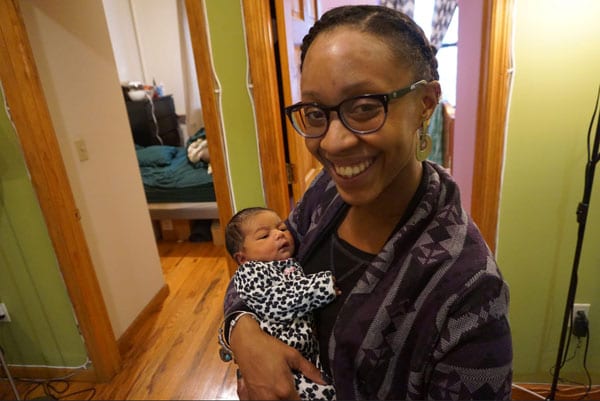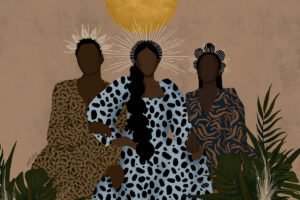
March 16, 2019; Press of Atlantic City
The persistence of high maternal and infant mortality rates among Black women is now being addressed in a very different way in New Jersey, says Ronsha Dickerson, the doula leader for the Southern New Jersey Perinatal Cooperative’s Healthy Women, Healthy Families program. The program trains Black women to act as resources for other pregnant Black women before, during, and after birth. They are not medical professionals, but they help women get what they need in terms of information, services, and attention. Their services are free.
One mother, Shanita White, says the services work around the needs of the mother. At one point last month, she says, she realized that her baby wasn’t moving, so she called her doula, who advised her to lie on her right side and drink water.
“As soon as I did that, he started moving again,” White said. “And then she texted me the next morning to make sure everything was OK. The doctors don’t do that, so I like being able to have a follow-up afterward.”
There are a number of networks of Black doulas around the United States, and increasing attention has been paid to the practice as maternal and infant mortality rates in the Black community have remained far higher than in white communities—even, according to this article by Linda Villarosa in the New York Times, across class lines.
Sign up for our free newsletters
Subscribe to NPQ's newsletters to have our top stories delivered directly to your inbox.
By signing up, you agree to our privacy policy and terms of use, and to receive messages from NPQ and our partners.
The reasons for the black-white divide in both infant and maternal mortality have been debated by researchers and doctors for more than two decades. But recently there has been growing acceptance of what has largely been, for the medical establishment, a shocking idea: For black women in America, an inescapable atmosphere of societal and systemic racism can create a kind of toxic physiological stress, resulting in conditions—including hypertension and pre-eclampsia—that lead directly to higher rates of infant and maternal death. And that societal racism is further expressed in a pervasive, longstanding racial bias in health care—including the dismissal of legitimate concerns and symptoms—that can help explain poor birth outcomes even in the case of black women with the most advantages.
This argues for far more than merely a medical approach. New Jersey Gov. Phil Murphy is a proponent of the program, which is now funded largely through the Department of Health. Murphy is proposing that the state kick in another $1 million.
“The facts are jarring,” [Murphy] said, saying New Jersey has one of the highest rates of maternal mortality in the country. “Even worse, 60 percent of new mothers who die because of complications from childbirth are women of color. A black baby in New Jersey is three times more likely to die in his or her first year of life than a white baby—the widest racial disparity in the nation,” Murphy said. “Medicaid covers 40 percent of all childbirths in New Jersey—and these babies deserve a chance as much as any other.”
New York’s Governor Andrew Cuomo has similarly freed up Medicaid funds for a pilot program making use of doulas in New York, and programs have also been piloted in Minnesota and Oregon. This article in The Cut, called “What it’s Like to be a Doula of Color,” provides a number of rich, first person reflections on how the programs work and why they are so badly needed.—Ruth McCambridge











